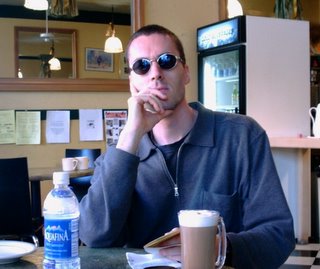Web 2.0 meets "Deconstruction"
Studying literary theory in the eighties or early nineties one could not escape the intellectual brilliance and confusion that the literary theory of “Deconstruction” brought to the discourse at most European and North American Universities. Reading and rereading books by thinkers like Derrida, Lyotard, or Foucault was the challenging main stable of anyone who wanted to participate in a new understanding of old and new texts within the academic discourse. Their claim of the death of authorship, their fight against a (or any) dominant narrative, and their endless dissection of short elements of any texts taught an unique way of reading and thinking.
The mid nineties seem to signal the slow decline of this particular branch of literary theory. But over the last year the sudden and strong critique of many social elements of the Web 2.0 universe (nicely summarized in Sunday’s New York Times article by Michiko Kakutani), could give one the impression that the success of Web 2.0 turned Deconstruction from a literary theory into a way of life of the modern Internet user. This life is defined by:
- The loss of any regards for original authorship: Everything is borrowed, reused, repurpose, rewritten, recreated, sometimes with the clear reference to the original version, more often without any regards to it. The original has died, now everything is just the endless copy without necessary reference to the original and without acknowledging its character as a copy (Philosophers like Derrida called this a “Simulacrum”)
- Any central narrative has been lost: The Internet allows not just the accelerated speed of any news but it empowers an endless stream of smaller and smaller stories (e.g. cat chasing its own tail, Spitzer explaining his affairs, Democrats passing the Health Care bill) without necessary any broader significance or prioritization. Neil Postman meets Jean Baudrillard.
- Any text has the same authoritative value: The article by a Nobel or Pulitzer price winning author has the same authority, reach, frequency, and influence than a blog entry or tweet by a celebrity with a large followership. The quality of one’s craftsmanship seems to be less important than the loudness of someone’s megaphone.

